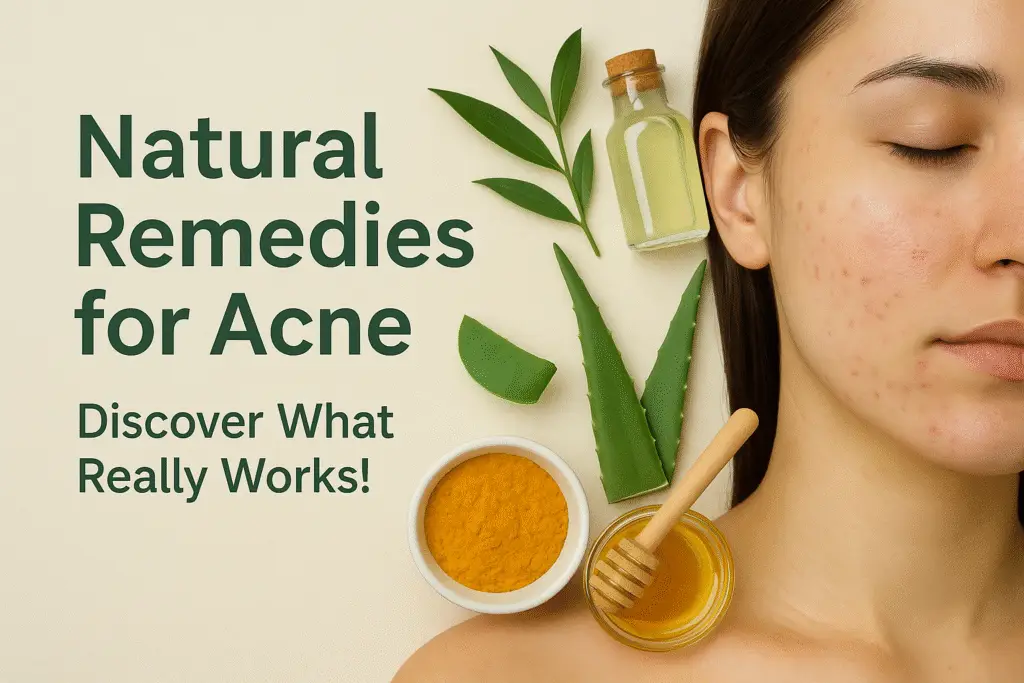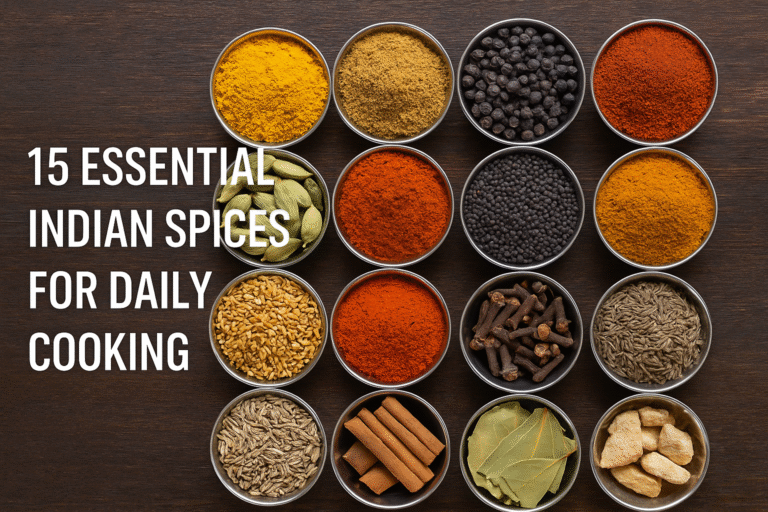
Acne is more than just a skin condition—it’s a confidence killer, a source of frustration, and sometimes even a physical pain. If you’ve dealt with persistent breakouts, you know the struggle. From expensive skincare routines to strong prescription treatments, many people end up on a never-ending quest to clear their skin. But what about natural remedies? Do any of them actually work?
The short answer: yes, some do. But like everything in skincare, results vary depending on your skin type, genetics, and overall health. In this post, we’ll dig deep into the natural options that have some science and success stories behind them. No fluff—just honest info you can use.
1. Tea Tree Oil: Nature’s Spot Treatment
This essential oil comes from the leaves of the tea tree plant, native to Australia. It’s known for its antimicrobial and anti-inflammatory effects, making it a strong natural contender for acne treatment.
Why it works:
- Fights acne-causing bacteria (like P. acnes)
- Reduces swelling and redness
How to use it safely:
- Always dilute. Mix 1 part tea tree oil with 9 parts carrier oil (jojoba, coconut, or almond oil work well).
- Apply only to affected areas with a cotton swab.
- Use once daily to start—monitor for irritation.
Real talk: Some people see noticeable improvement within a week. For others, it takes longer. Patience and consistency are key.
2. Aloe Vera: The Skin Soother
You probably know aloe as the stuff that helps with sunburn, but it’s also a solid player in the acne-fighting game. Aloe contains naturally occurring salicylic acid and sulfur—two ingredients often found in acne products.
What it does:
- Calms inflamed skin
- Helps heal post-acne marks
- Provides light hydration without clogging pores
How to apply:
- Use fresh aloe gel directly from the plant if you can.
- Apply a thin layer after washing your face.
- Let it sit and absorb—no need to rinse.
Human insight: Aloe is especially helpful if your acne is linked to irritation or over-drying from other products.
3. Apple Cider Vinegar (ACV): The Controversial Toner
ACV gets a lot of buzz for everything from digestion to dandruff. When it comes to acne, its antibacterial properties and ability to balance pH levels are what give it potential.
How it might help:
- Kills acne-causing bacteria
- Exfoliates dead skin cells
- Reduces oiliness over time
How to use carefully:
- Mix 1 part ACV with 3–4 parts water (more if you have sensitive skin).
- Apply with a cotton pad, let sit for no more than 20 seconds, rinse thoroughly.
- Start with every other day to gauge tolerance.
Caution zone: ACV is acidic and can burn or over-dry your skin if not diluted properly. Always patch test.
4. Green Tea: Antioxidants from Inside and Out
Drinking green tea supports overall wellness, but it also has direct benefits for your skin—especially when used topically.
Why it’s worth a try:
- Rich in EGCG, a powerful antioxidant that fights inflammation and bacterial growth
- Reduces sebum production
How to use it:
- Brew a cup of green tea, let it cool, and use a cotton ball to apply it to clean skin.
- Leave it on or rinse off after 15–20 minutes.
- You can also look for skincare products with green tea extract.
Bonus: Drinking 1–2 cups daily adds internal support to your skincare efforts.
5. Honey and Cinnamon: Sweet but Serious
This combo sounds like a breakfast recipe, but it’s actually a time-tested home remedy for acne. Both honey and cinnamon have antibacterial and anti-inflammatory properties.
Why it’s effective:
- Honey acts as a natural humectant and antibacterial agent
- Cinnamon enhances circulation and kills surface bacteria
How to use:
- Mix 2 tablespoons raw honey with 1 teaspoon cinnamon.
- Apply to your face as a mask.
- Leave on for 10–15 minutes, rinse off gently.
What to expect: It won’t magically erase cystic acne, but it can calm minor breakouts and reduce redness.
6. Witch Hazel: Nature’s Toner
Used for centuries in traditional medicine, witch hazel is extracted from the bark and leaves of the Hamamelis plant. It’s a gentle astringent that’s ideal for oily or acne-prone skin.
How it works:
- Tightens pores
- Reduces oil production
- Soothes inflamed skin
Application tips:
- Choose alcohol-free witch hazel.
- Apply with a cotton pad after cleansing.
- Use once or twice daily.
Pro tip: Look for formulations that include aloe or rose water for added skin benefits.
7. Food as Medicine: What You Eat Shows on Your Face
There’s increasing evidence that what we eat impacts our skin. While no one diet will fix acne overnight, certain habits can help reduce inflammation and regulate hormones.
Foods to limit:
- Sugary snacks and drinks
- Processed foods and fast food
- Dairy (especially skim milk)
What to eat more of:
- Leafy greens and colorful veggies (antioxidants)
- Fatty fish like salmon (omega-3s)
- Whole grains and legumes
- Water-rich fruits like cucumber, watermelon, and oranges
Supplements to consider:
- Zinc (supports skin healing)
- Probiotics (supports gut-skin connection)
- Vitamin D (regulates skin cell growth)
Lifestyle insight: Small changes over time can create noticeable improvements in your skin’s tone, texture, and clarity.
8. Zinc: The Underrated Acne Fighter
Zinc is an essential mineral that plays a big role in immune function and wound healing. For acne, it’s particularly helpful because of its ability to reduce inflammation and bacterial activity.
How to take it:
- Look for zinc gluconate or zinc picolinate.
- Typical dose: 30–45 mg daily (consult your doctor first).
Topical option:
- Look for creams with zinc oxide for spot treatment.
Good to know: Taking too much zinc can cause side effects like nausea, so stick with moderate dosing and always take it with food.
9. Turmeric: Golden Glow Inside and Out
This ancient spice isn’t just for curries—it’s packed with curcumin, an anti-inflammatory and antimicrobial powerhouse.
How to use externally:
- Mix 1 teaspoon turmeric powder with honey or plain yogurt.
- Apply as a spot treatment or full-face mask.
- Leave on for 10–15 minutes, rinse off thoroughly.
How to use internally:
- Add turmeric to smoothies, soups, or golden milk.
- Consider curcumin capsules (look for versions with black pepper extract for better absorption).
Heads up: Turmeric can temporarily stain your skin yellow, so don’t use it before a big event.
10. Habits That Matter More Than You Think
No product or remedy will work if your daily habits are sabotaging your progress. Here’s where consistency pays off:
- Clean your phone screen regularly—it touches your face more than you think.
- Change pillowcases at least twice a week.
- Avoid touching your face, especially with dirty hands.
- Stay active—exercise reduces stress and improves circulation.
- Sleep 7–9 hours a night—your skin repairs while you rest.
- Don’t pick at pimples—this increases the chance of scarring.
Personal Experience: What Actually Worked
Every person’s skin journey is unique. Some swear by apple cider vinegar while others find it too harsh. For me, switching to gentle cleansers, drinking more water, cutting dairy, and applying diluted tea tree oil made a significant difference over a couple of months. My breakouts didn’t vanish overnight, but they became smaller, less painful, and less frequent.
The biggest takeaway? Be kind to your skin. The goal isn’t perfection—it’s health and balance.
Final Thoughts
If your acne is painful, persistent, or impacting your mental health, don’t hesitate to consult a dermatologist. Combining professional care with mindful natural strategies might be the best path forward. There’s no one-size-fits-all solution for acne, but natural remedies offer a safe and holistic approach worth exploring. They’re affordable, accessible, and often come with fewer side effects than synthetic products. Still, remember: “natural” doesn’t always mean “harmless.” Test slowly, observe how your skin reacts, and combine what works for you. Clear skin isn’t just about treatments—it’s about consistency, patience, and treating your body (and your skin) with respect.
Disclaimer: This post is for informational purposes only. Always consult a healthcare provider before starting any new skincare or supplement regimen.



